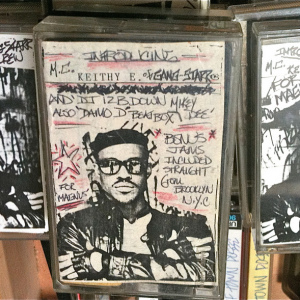Will increased media scrutiny make politicians less like machines, or more?
A few years ago, I remember watching a documentary about the rise of Tony Blair. One journalist who had been a lobby correspondent when he first became an MP said it was clear how well he understood the media from his first day in Parliament. He gave an example that he felt demonstrated this best: Blair had been doing a pre-recorded clip for this journalist. He was asked a number of questions but repeated the exact same words as his answer, again, and again, and again.
A few decades later and this trick – used by politicians of all stripes – is a common trick. In fact, I’ve even used it myself on one or two occasions. If you have one clear message that you want to communicate, and if you know that the journalist will only take a ten second clip, or a thirty second clip from your interview, then why should they get to decide what you will say? It’s a way of maintaining control over your message. If I’m honest, whether it’s done by Ed Miliband, or by George Osborne, or by anyone else, I don’t really have a problem. If journalists would show full interviews all the time, obviously it would be stupid. But they can’t. And so why should they, rather than their interviewees, get to decide which of the things that the interviewee has said is most important based on their sensationalist media standards? I have even taught activists to perform the same trick: “you are the expert in this subject, you know much more than the journalist about it, why should you let them decide which of the many things you might say is the most significant when that risks cutting out your key argument?”.
But it seems that this has changed. Because now, the internet gives us much more of a chance to hold the media, and those who use it, to account. Another example of this is the Johann Hari affair. Without the internet, Johann would probably never have been caught. If he had been caught, it would have been very difficult for the person who did catch him to make the information public.
But what we see in the response to these interviews is the disgust that people feel when they realise something pretty simple about the media: that it is all a performance. Anyone who’s written a press release knows that when a paper says that someone ‘says’ something, that person has probably never actually said those words – they have just signed off a quote written by their press officer. Whenever I have taught people to write press releases, someone has remarked on this, with surprise. People tend to think that the media is reporting on things that happen outside the world of the media. But so often, they are reporting on people who are highly aware of the fact that they are reporting on it. It is a sort of extreme version of the uncertainty principle – it’s not just that by recording the event, they change it. Often, if they weren’t recording it, it wouldn’t happen at all.
In the latter case – with Johann – we see an increased ability to hold powerful journalists to account. And given how clear it is that people find the whole charade distasteful, that power will surely force both the media, and those whose lives are spent performing for it, to change.
What will be interesting it to see whether these are changes for the better, or whether people will just be forced to be even better at spin, and will have to learn to communicate the same message again and again despite giving multiple answers to multiple questions. Increased scrutiny may force our politicians to be more human. But I suspect it’s more likely to force them to be even more machine-like. After all, when Blair gave the same answer whatever the question, it was cheeky charm – a sign of his skill. When Miliband did, it was because he was ‘robotic’. Perhaps Ed’s mistake is not that he is a machine, but that he is a human, trying to mimic the machines around him. As we scrutinise more, will we force our politicians to become even more effective machines? That’s up to us.


Leave a Reply